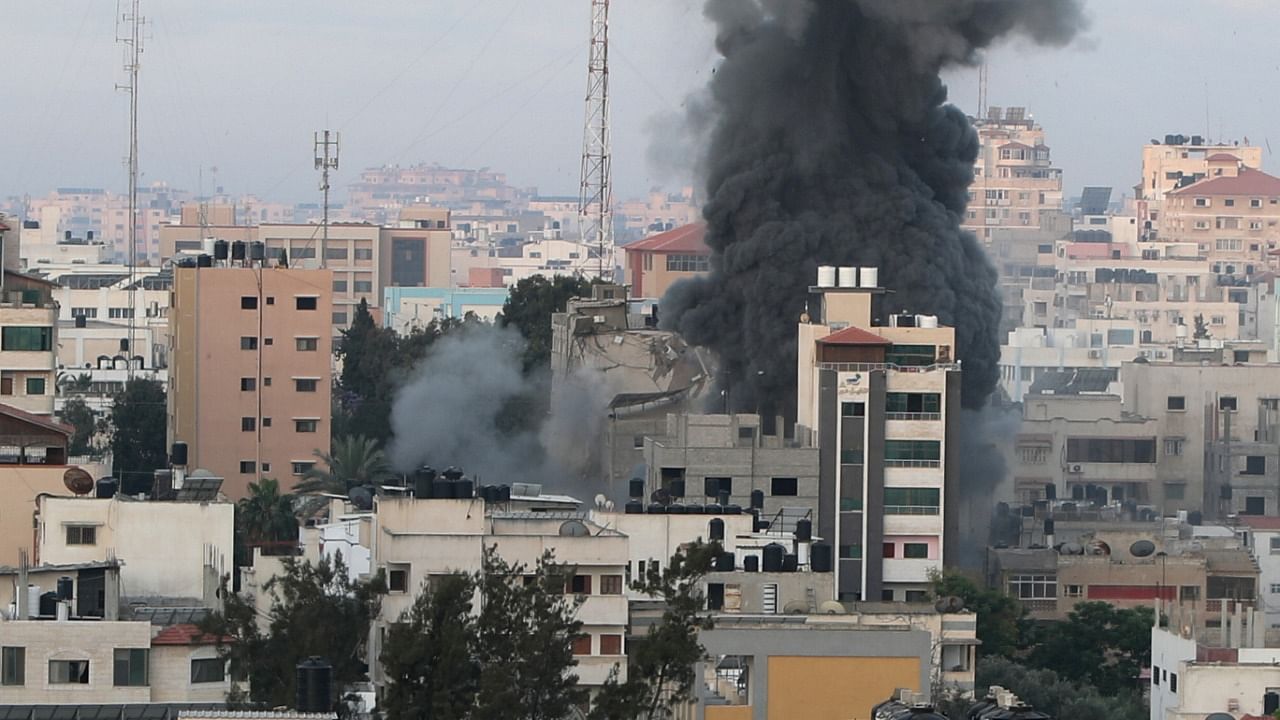
Israel continued its barrage of Gaza overnight, as multiple strikes crashed into buildings.
Credit: Reuters Photo
It is a measure of how tight the New Delhi-Tel Aviv embrace has become in recent years that Prime Minister Narendra Modi quickly expressed solidarity with Israel and shock at the terror strike by the Palestinian militant group, Hamas, after the Islamist group launched an attack on Israel last Saturday. This was followed by a reiteration of support and condemnation of terrorism in a telephone talk with Israeli Prime Minister Benjamin Netanyahu. Hamas launched its unprecedented terror strike from the Palestinian enclave of Gaza, which it controls. Israel has launched a ferocious counterstrike. The raging conflict has already left hundreds of civilians dead and thousands injured on either side. And yet, the Modi government’s sympathies so far lie only with Israel. Undeniably, there has been a dilution in New Delhi’s support for the Palestinian cause, though on paper it continues to back a two-state solution.
While Hamas’ terrorist tactics cannot be condoned, India’s studied silence on the plight of the civilian population living in the Gaza strip, now being bombarded by Israeli jets, has not gone unnoticed, particularly by the Arab world. Netanyahu has declared war and his Defence Minister has announced a complete siege of Gaza. It is not merely the strategic convergence of the interests of New Delhi and Tel Aviv that is driving India to express unabashed solidarity with Israel without uttering a word of condemnation for the targeting of ordinary Palestinians or calling for de-escalation of tensions. It is also indicative of the current dispensation’s desire to burnish its credentials as one strong on national security as well as the impact of the domestic anti-Muslim politics on a foreign policy matter.
Such lopsided positioning on the current conflict could mean that New Delhi may find itself on a slippery slope as far as its relations with the larger Arab world are concerned. India’s ties with many West Asian nations got a fresh impetus under the Modi government, raising their expectations of a more balanced approach by New Delhi. While the Arab world itself may be divided, for now, on the conflict, a more nuanced approach by India would have ensured that the deep ties it forged in West Asia remain intact. New Delhi would do well to remember that the current turmoil roiling West Asia could affect its own long-term strategic interests there. The Abraham accords are already under threat of unravelling and the conflict could cast a shadow on the I2U2 (India, Israel, US, UAE) initiative as well as the India-Middle East-Europe connectivity project. New Delhi would do well to remember that in diplomacy, it is always wise not to put all your eggs in one basket.